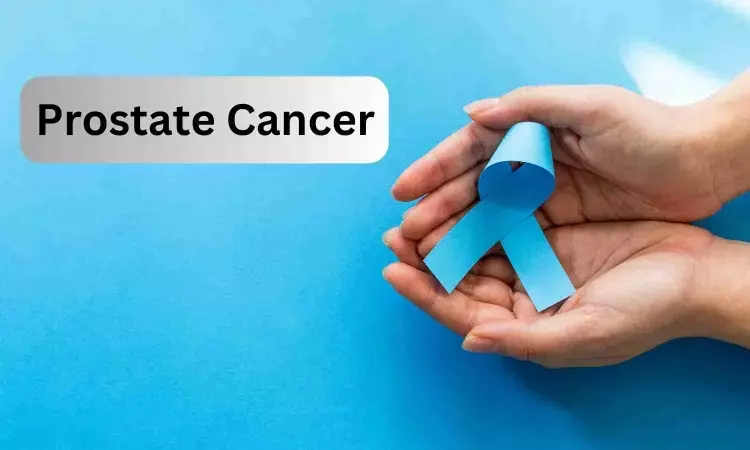- Home
- Medical news & Guidelines
- Anesthesiology
- Cardiology and CTVS
- Critical Care
- Dentistry
- Dermatology
- Diabetes and Endocrinology
- ENT
- Gastroenterology
- Medicine
- Nephrology
- Neurology
- Obstretics-Gynaecology
- Oncology
- Ophthalmology
- Orthopaedics
- Pediatrics-Neonatology
- Psychiatry
- Pulmonology
- Radiology
- Surgery
- Urology
- Laboratory Medicine
- Diet
- Nursing
- Paramedical
- Physiotherapy
- Health news
- Fact Check
- Bone Health Fact Check
- Brain Health Fact Check
- Cancer Related Fact Check
- Child Care Fact Check
- Dental and oral health fact check
- Diabetes and metabolic health fact check
- Diet and Nutrition Fact Check
- Eye and ENT Care Fact Check
- Fitness fact check
- Gut health fact check
- Heart health fact check
- Kidney health fact check
- Medical education fact check
- Men's health fact check
- Respiratory fact check
- Skin and hair care fact check
- Vaccine and Immunization fact check
- Women's health fact check
- AYUSH
- State News
- Andaman and Nicobar Islands
- Andhra Pradesh
- Arunachal Pradesh
- Assam
- Bihar
- Chandigarh
- Chattisgarh
- Dadra and Nagar Haveli
- Daman and Diu
- Delhi
- Goa
- Gujarat
- Haryana
- Himachal Pradesh
- Jammu & Kashmir
- Jharkhand
- Karnataka
- Kerala
- Ladakh
- Lakshadweep
- Madhya Pradesh
- Maharashtra
- Manipur
- Meghalaya
- Mizoram
- Nagaland
- Odisha
- Puducherry
- Punjab
- Rajasthan
- Sikkim
- Tamil Nadu
- Telangana
- Tripura
- Uttar Pradesh
- Uttrakhand
- West Bengal
- Medical Education
- Industry
Primary Partial Gland Cryo-Ablation Shows Success in Intermediate-Risk Prostate Cancer, unravels study

New York, NY: A recent prospective cohort study published in Urology Journal has provided encouraging insights into the effectiveness of Primary Partial Gland Cryo-Ablation (PPGCA) for men with intermediate-risk prostate cancer. Over five years, researchers observed significant oncological outcomes, suggesting this innovative treatment could offer a viable alternative to more invasive procedures.
The researchers found that the intermediate-term oncological outcomes following PPGCA were highly encouraging, supported by excellent compliance with a rigorous prospective protocol for detecting recurrent clinically significant prostate cancer (csPCa).
PPGCA, a minimally invasive procedure, targets cancerous cells within the prostate while preserving as much healthy tissue as possible. This approach not only aims to manage cancer but also to reduce the potential side effects often associated with more extensive surgeries. Considering this, Herbert Lepor, Department of Urology, NYU Grossman School of Medicine, New York, NY, and colleagues aimed to evaluate the 5-year oncologic outcomes after PPGCA in patients with intermediate-risk prostate cancer.
For this purpose, the researchers enrolled 476 men undergoing PPGCA in their prospective study on oncologic and functional outcomes. Among these, 313 participants had MRI-concordant intermediate-risk prostate cancer, with no evidence of out-of-field Gleason Grade Group (GGG) ≥2, gross extracapsular extension, or severe apical disease on pre-treatment mpMRI. PSA levels were monitored every six months, and mpMRI assessments were conducted at 6-12, 24, 42, and 60 months.
Following an interim analysis that indicated low rates of clinically significant prostate cancer defined as any GGG≥2 disease, protocol biopsies at 6-12 months and 24 months were discontinued. Freedom-from-failure (FFF) was defined as the absence of prostate cancer-specific mortality, metastatic disease, or whole-gland salvage treatment (WGST).
The following were the key findings of the study:
- Clinically significant prostate cancer was identified in 10.5% of participants.
- Among the 91 subjects with at least 4.5 years of follow-up data, the mean number of surveillance procedures included 8.9 PSA tests, 3.4 MRIs, and 2.0 prostate biopsies, with no participants lost to follow-up.
- At the five-year mark, the rates of freedom from recurrence were as follows:
- In-field csPCa: 86%
- Out-of-field csPCa: 85%
- Overall csPCa: 70%
- The proportion of participants achieving freedom from failure at five years was 89%.
- There were no deaths due to prostate cancer; however, one participant (1%) developed metastasis.
- 16.5% of participants underwent whole-gland salvage treatment, and 16.5% received salvage focal therapy (FT).
- Compliance with the five-year surveillance protocol was high, with only 3.3% of eligible men being non-compliant.
The prospective 5-year study offers strong oncological evidence supporting the use of Primary Partial Gland Cryo-Ablation (PPGCA) for carefully selected men with intermediate-risk prostate cancer.
"Our previously published results indicate that these favorable oncological outcomes are achieved without rectal injury or urinary incontinence," the researchers wrote.
Additionally, lower urinary tract symptoms (LUTS) improved with only a modest effect on sexual function. This reinforces the potential of PPGCA as a viable treatment option for this patient population," they concluded.
Reference:
Lepor, H., Rapoport, E., Tafa, M., Gogaj, R., & Wysock, J. S. (2024). 5-year Oncologic Outcomes Following Primary Partial Gland Cryo-Ablation (PPGCA) Prospective Cohort Study of Men with Intermediate-Risk Prostate Cancer. Urology. https://doi.org/10.1016/j.urology.2024.10.039
Dr Kamal Kant Kohli-MBBS, DTCD- a chest specialist with more than 30 years of practice and a flair for writing clinical articles, Dr Kamal Kant Kohli joined Medical Dialogues as a Chief Editor of Medical News. Besides writing articles, as an editor, he proofreads and verifies all the medical content published on Medical Dialogues including those coming from journals, studies,medical conferences,guidelines etc. Email: drkohli@medicaldialogues.in. Contact no. 011-43720751


